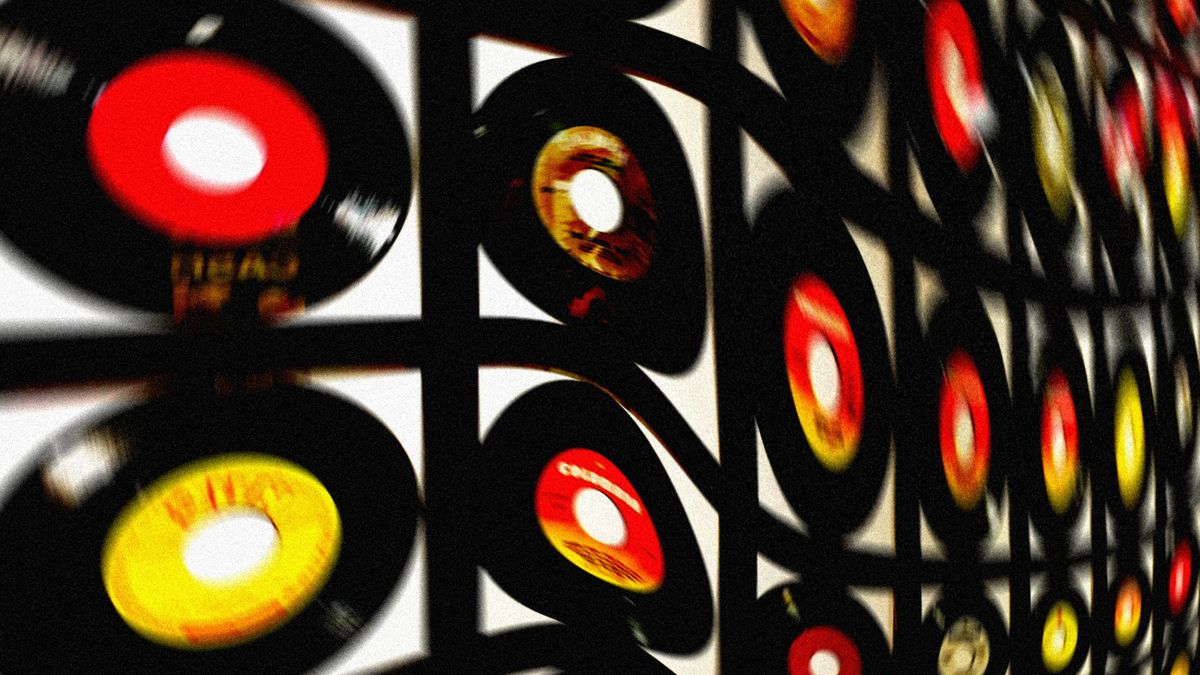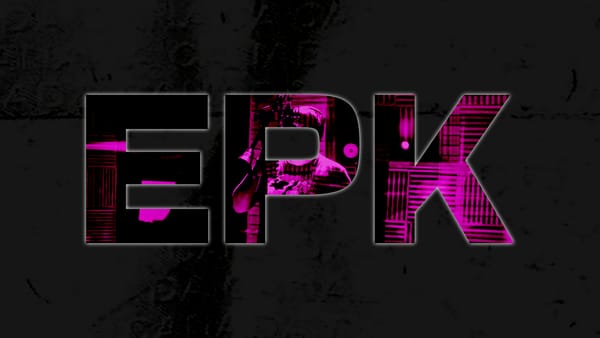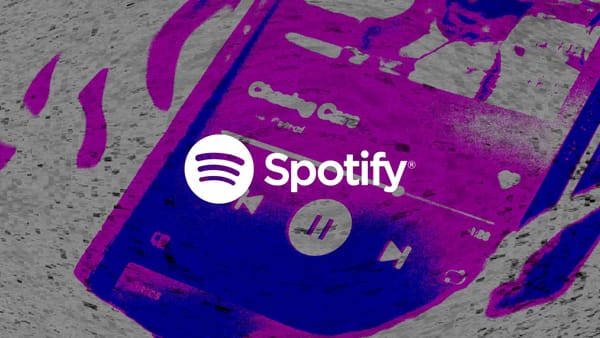How Hard is it for Unsigned Artists to Get Record Label Attention?
Read this if you're wondering how hard it is for unsigned artists to get record label attention.

At some point every artist dreams about blowing up and signing to a major record label. Navigating the music industry can be a challenge. Although advancements in technology have made the process easier, many artists struggle to establish validation or generate income.
If blowing up as a major artist is your plan, you might be wondering how hard is it for unsigned artists to get record label attention?
Regardless of advancements in technology, getting attention from a record label is extremely hard. Record executives have access to talented artists and producers with millions of followers, streams and views - getting a meeting or impressing them won’t be easy.
Also, having their attention doesn’t mean you’ll be signed.
There are many reasons making it difficult for artists to get label attention including standing out in a crowded market, validation as an investment, industry gatekeeping, scammers and label resources.
Standing Out in a Crowded Market
One of the reasons it’s hard to get the attention of a record label is because there are so many artists releasing music. In many cases everyone sounds alike, looks alike, and does the same thing in every video - nobody stands out.
In Toronto, everybody wants to be a rapper. Myself, I’d rather own the label, but I understand the appeal of being famous. When everybody in the city is doing the same thing, it’s even more important to differentiate yourself as an artist.
Differentiation happens when you focus on what makes you different or unique as an artist. This week I saw at least 20 videos with rappers wearing a shiesty, but we already have a Poo Shiesty. Even if you have to keep certain faces hidden for whatever reason, be original.
Many artists overlook branding. Not understanding that an authentic brand and image will help them stand out from the millions of other artists fighting for attention.
Currently, there are 20,000+ songs being uploaded to Spotify and other streaming services daily. Some estimates go as high as 100,000. Companies like Ditto, Tunecore and United Masters have made the distribution process so easy, that streaming services are flooded with new music.
In fact, leading data analysis company Luminate indicates that 195+ million songs weren’t even heard. Unfortunately, these songs failed to meet new thresholds set by Spotify and Deezer regarding future royalty payouts.
People need to hear the music before they can fall in love with it, and record labels are leaning towards artists already generating an income instead of artists needing development.
The music industry is expensive, time consuming and unforgiving. To make it artists need more than just talent. They need a working combination of image, music, funding, marketing, business and a solid team to keep everything running.
How hard is it to get signed by a record label?
People get into the record business with big dreams and unrealistic expectations. Realistically speaking, the chances of a getting a record deal are not good.
An RIAA report titled “Rebooting the record label” indicates a total of 658 acts were signed in 2017. While reports from Rolling Stone and Billboard suggest this number has increased there are still millions of artists fighting for an extremely limited number of record deals.
A label needs resources to develop and market an artist. These resources are limited and unfortunately artists can end up shelved when budgets max out.
If signing to a label is your end goal take advice from Wendy Day and start to build relationships with A&Rs yourself. Social media has made it so easy to locate and connect with people in A&R or other executive positions.
Ideally, artists should focus on marketing and establishing validation so the labels come looking for them.
Validation
One of the hardest things for an independent artist to achieve is validation. It’s hard to even describe exactly what validation is because it can look different for each artist.
Validation can include selling merch, booking paid shows, growing a strong social media following and/or impressive YouTube and Spotify data.
Today, social media and the music industry work hand in hand. Labels want to see high levels of engagement and an indication of a return on their investment. Using social media is an easy way to establish social proof while connecting with people in the industry.
Are you getting paid for shows outside of your own city? According to Wendy Day artists should be able to book shows not just in there own cities and state but neighbouring states, speaking to US recording artists. (Canadian artists should be able to book shows in all major cities or across the border.)
Wendy Day has been behind some of the most important record contracts in hip hop history, including the Cash Money Records deal.
Building social proof, selling merch and strong streaming numbers are good metrics to measure validation but it also extends to your level of professionalism.
Are you operating like a business? That means income and tax statements, established credit in the business name, accountants, lawyers and paperwork.
Then you need marketing, monetizing and developing your music as a product, distribution, licensing, the list goes on.
This all requires working with a close team and/or hiring reliable, high performance people but, do your research because the industry is filled with bad advice, scammers and gatekeepers.
Scammers & Gatekeepers
It’s common for people coming up in the music industry to be scammed or mislead by companies or individuals looking to make quick money, or who just don’t want to see you shine. Sadly, it can happen with legitimate people. It’s not personal, it’s business.
Paying for meetings, or to get your music in front of executives is at best a side hustle for middle men, if not complete bs. Paying someone to shop you a deal is a red flag, like Wenday Day says, “people with experience get paid on the back end”.
Paying for play, commonly referred to as payola, it’s a grey area music business practice that many people frown upon but which persists none the less. Paying DJs, blogs etc to push your music on their audiences.
Besides complete scammers, unsigned artists need to be cautious of signing bad deals, or contracts they do not fully understand. This includes hiring low budget marketing services that utilize streaming farms, other forms of streaming fraud or the purchasing of fake followers and subscribers.
Final Thoughts,
It’s seriously hard work to get record label attention as an unsigned artist, in any genre. Even if you’re focused on differentiating yourself from other artists and establishing social proof it could take months or years to happen.
I’m currently opening up my schedule to help two artist or producers establish social proof and validation. If you’re a hungry artist or producer, especially from Toronto or Montreal, reach out and let’s see what we can do together.
FAQs,
What's the difference between independent and signed as an artist?
The difference between an independent artist and a signed artist is who owns the masters. An independent artist owns their masters regardless of any administration or distribution deals they may sign. The differentiator is the ownership of the master recording.
Do you need to be signed to a record label to be successful?
No, you do not need to be signed to a record label to be successful; in fact you’ll likely need to prove some degree of success in order to get signed by a record label.
Who signs you to a record label?
Typically an A&R or someone from a labels A&R department, the artist's manager and entertainment lawyers are involved in the process when signing to a record deal.
Do record labels look at Tik Tok?
Yes, record labels look at and are active on Tik Tok and other popular social media channels.
What are the disadvantages of being signed to a record label?
Every record deal is different, but the biggest disadvantages of a record deal are typically the loss of creative control and the loss of ownership (master recordings).
How does an unsigned artist get the attention of a record label?
The easiest way for artists to get noticed is by leveraging streaming platforms and social media to network with important people, establish social proof and cultivate a fan base.
Related,







